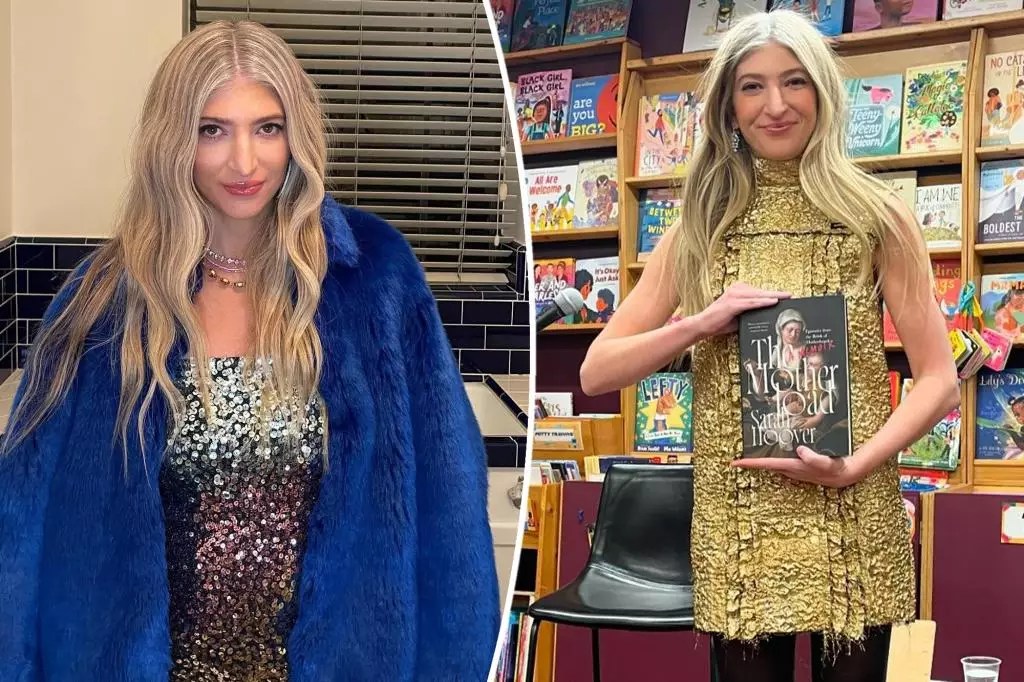In the intricate world of memoir writing, the boundary separating personal discovery from familial betrayal is razor-thin. The recent controversy surrounding Sarah Hoover’s book “The Motherload” perfectly encapsulates this tension. Hoover, a figure celebrated in literary circles, faces serious accusations from her estranged sister regarding the use of sensitive family matters, including the devastating loss of a child. Such incidents serve as a poignant reminder of the ethical complexities memoirists navigate, where emotional truths collide with the thirst for narrative engagement.
The essence of memoir writing is often rooted in transparency, the unfiltered expression of one’s lived experiences. However, this pursuit of honesty raises critical questions: When does sharing one’s story begin to encroach on the lives of others? In this situation, Hoover’s sister argues that while the memoir has garnered attention, the content comes at an unbearable cost, emphasizing the weight of personal trauma that has been traded for public consumption.
The Emotional Fallout of Public Exposure
Imagine grappling with the heartbreak of losing a child, a journey fraught with intimate and raw emotions, only to discover that the details of that suffering have been laid bare for an audience of millions. In a Reddit post, Hoover’s sister recounted her feelings of betrayal when the tragic narrative of her stillbirth was repurposed in “The Motherload.” She explicitly requested Hoover not to divulge specific aspects of their shared experience, highlighting a deep fracture in their relationship. The emotional fallout is not to be understated; such revelations can lead to feelings of isolation and anxiety, exacerbating the already painful grieving process.
The sister’s account sheds light on the psychological impact of public exposure, indicating that for some, the literary pursuit for authenticity can feel more like an act of violence than a pathway to understanding. The act of pushing personal trauma into the limelight can reverberate within an already fragile emotional state, making readers ponder the price of authenticity in writing. Does the audience consider the implications of their fascination with lived experiences, especially those involving profound sorrow?
Publicists and the PR Machine
Hoover’s publicist’s decision to dismiss the allegations as a “family matter” further complicates the narrative. This lack of engagement suggests a refusal to recognize the deeper consequences of the writer’s decisions on familial relationships. It raises a troubling question about the role of public relations in these situations: should the focus be solely on promoting the book’s success, or should there be accountability for the relationships that risk unraveling in its wake?
In a society eager for scandal and drama, it’s easy for the media machine to churn out sensational stories while neglecting the human stories at the foundation of these conflicts. The publicist’s statement seems to trivialize the very real pain experienced by Hoover’s sister and, by extension, the implications of her sister’s actions on their familial dynamics. This dichotomy between personal life and public persona illustrates a growing disconnect between the individuals behind the words and the audiences consuming them.
The Consequences of a Misguided Narrative
The unfolding saga of Hoover and her sister highlights a profound dilemma within the memoir genre: the potential destructiveness of narrative embellishment. Accusations of deceit—such as claiming to have held the newborn in the hospital—suggest that storytelling can easily become a minefield when it involves real-life accounts. The danger lies not only in potential falsehoods but in weaving a narrative that embellishes pain rather than honoring it.
When personal experiences become fodder for commercial success, the limits of creativity are tested. The sister’s outcry for justice and accountability underscores the moral responsibility memoirists hold. The very act of writing must be tempered with an understanding of the lives entwined in those stories. Art should aim for empathy, not exploitation; when it strides precariously into the latter, the consequences can be devastating.
In literature, the balance between creating compelling narratives and respecting the intricacies of personal trauma necessitates a careful and conscientious approach. For memoirists like Sarah Hoover, the act of storytelling should not come at the expense of the souls entwined with their narratives, lest it transform from an act of catharsis into an act of public aggression.


Leave a Reply